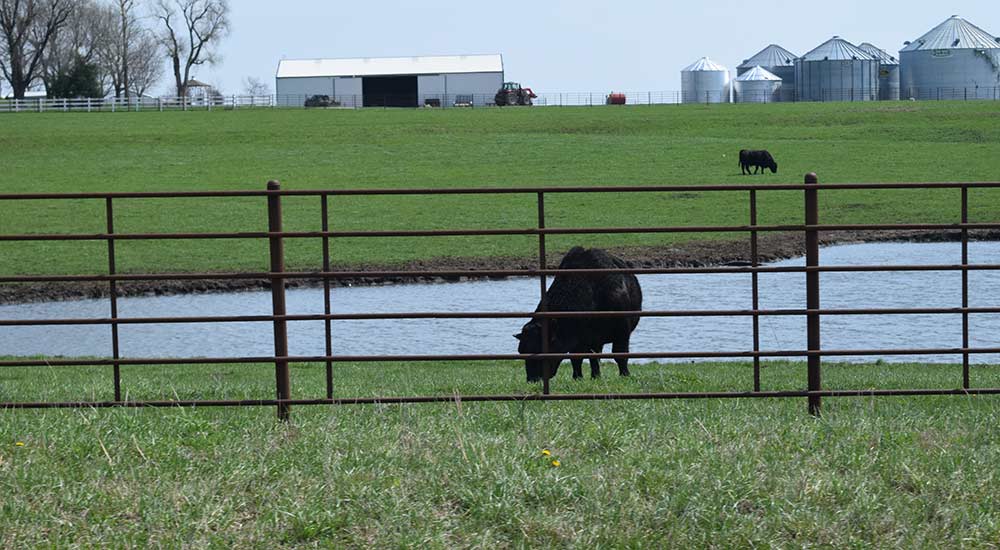Grain Bin Safety

According to OSHA, grain handling is a highly dangerous industry, with risks including fume inhalation, entrapment and even fire. In fact, data shows that entrapments accounted for 11 deaths in 2021 alone.*
When it comes to grain bin safety, it’s important to know exactly what you’re dealing with. With so much product stored in these bins before shipping, it’s easy to see how grain handling can quickly become a dangerous situation. Let’s take a moment to go over some common hazards and grain bin safety tips to help you and your team get through the day.
Common Hazards with Grain Bins
Working in grain bins comes with many risks, including:
Entrapment and Suffocation
Grain entrapment is the leading cause of death for workers. Moving grains inside the bin can trap a person in seconds, burying them under tons of product and depriving them of oxygen. Unfortunately, once a person is trapped it is nearly impossible to get them out without help.
Explosions
Did you know grain dust is highly flammable? When dust becomes airborne or accumulates on the surface of the grain storage bin, it becomes a serious fire hazard. Day-to-day grain handling operations include several possible sources of combustion, like hot bearings, overheating motors, cutting and more. That’s why OSHA requires that farmers control both grain dust and possible ignition sources.
Falls
Working in grain bins requires a lot of climbing, walking narrow catwalks and heights. With bin heights reaching anywhere from 22 to 108 feet, it’s no surprise that falling could lead to serious injuries.
Mechanical Equipment
As with any machine-based industry, malfunctioning and mishandled equipment can be a serious threat to employees. Unsafe handling of grain bin machinery can result in strangulation, lost limbs and more. That’s why it’s important to ensure your equipment is properly maintained and everyone working on your farm is trained.
Toxic Fumes
The fumes given off by spoiled grains or pest-control products can be a serious hazard for farm employees. Exposure to these fumes can make workers sick and increase the risk of related accidents, like falls or entrapment.
Grain Bin Safety Tips
Fortunately, there are a few simple ways to reduce your team’s risk and ensure everyone makes it home safely at the end of the day.
Prevent Grain Spoilage
The leading reason for farm workers to enter a grain bin is product spoilage. By taking steps to reduce spoilage, you’re ultimately reducing your risk of injury. The best way to ensure your product remains fresh is to:
- Keep aeration equipment working properly
- Quickly find and repair leaks
- Store products at the proper temperature and moisture levels
Keep Work Outside
Limit access to the inside of your grain bins to authorized, trained workers and only when absolutely necessary. Lock doors and post warning signs at all entry points to prevent unauthorized access and, if possible, use poles and other equipment to handle problems from outside.
Take Proper Precautions
If you need to work inside the bin, use secured harnesses or other devices to ensure workers have added protection. Task a safety lead with overseeing the work to ensure all other workers are operating safely and you have someone available to help in the event of an emergency.
Shut Off Machinery
OSHA recommends shutting off and locking all mechanical equipment when working in the bin to ensure there is no grain movement. Remember — flowing grain can trap workers in a matter of seconds, so prevention is vital to protecting you and everyone on your team.
Clean and Maintain Equipment
Another great way to keep yourself and everyone on your farm safe is to ensure your equipment is properly cleaned and maintained. Preventing grain dust buildup and keeping all machinery running smoothly can prevent a number of dangerous and costly accidents.
Create a Safe Environment
The most important thing you can do for your team and your business is to build a culture of safety:
- Train every team member on grain bin safety
- Ensure you are following all OSHA guidelines
- Have resources available for your workers to learn or to report problems as they come up
Protect Against What’s Possible
No one can predict an accident every time — even when you’re doing everything right, something can go wrong. That’s why it’s important to ensure you have the right insurance coverage in place to protect yourself, your farm and your employees from the unexpected.
Talk to an independent agent to learn more about insurance coverage for family farms and ranches.
*Source: Summary of U.S. Agricultural Confined Space-Related Injuries and Fatalities
